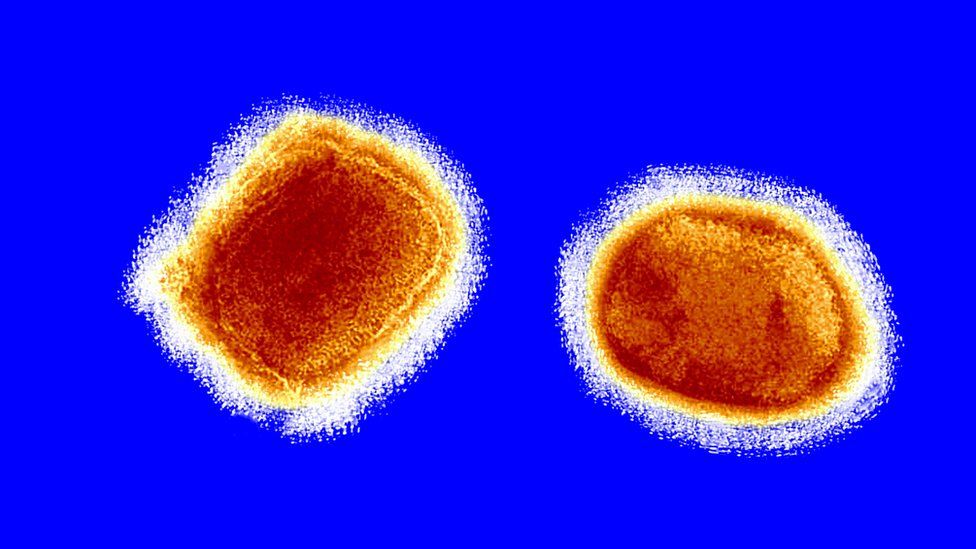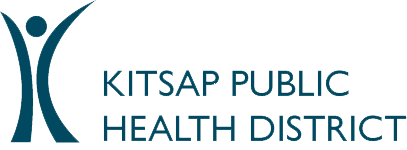
August 24, 2022
Actions Requested
- Clinicians should suspect Monkeypox virus infection in any patient presenting with one or more lesions that suggest monkeypox infection, regardless of the patient’s age, social history, gender, or sexual identity. Recently, the first cases of monkeypox in cisgender adult females and an adolescent under the age of 18 were reported in Washington State.
- Test patients for monkeypox when the diagnosis is considered.
- Understand testing procedures and turn-around times at the lab you use. Options for testing patients for monkeypox continue to expand to several commercial laboratories, as well as the Washington State Public Health Laboratories (PHL).
- WA DOH PHL specimen collection guidance
- Share our Fact Sheet for Cases with patients you are testing for monkeypox.
- Understand the criteria for vaccinating contacts of confirmed cases and the criteria for expanded post-exposure prophylaxis.
- Call the KPHD immunization program at 360-728-2007 for assistance with vaccinating eligible patients with barriers to engaging in or accessing care.
- Consider vaccinating your eligible patients with JYNNEOS vaccines. KPHD is seeking partnership with providers that may be interested in administering the vaccine. Please email immunizations@kitsappublichealth.org for more information.
- Learn how to prescribe TPoxx for your high-risk or severely symptomatic patients with confirmed or strong suspicion for monkeypox. Understand the process for obtaining this medication for your patients and documentation requirements when you elect to prescribe it.
- View Washington Department of Health on-Demand TPOXX Online Training
- Review August 9th KPHD webinar for clinicians and accompanying slides
- Report high suspicion suspect monkeypox cases immediately to Kitsap Public Health by calling 360-728-2235, as Washington State Department of Health (DOH) requires. We will help you complete an intake form and review exposure guidelines to evaluate close contacts.
Background
Kitsap County has 3 confirmed cases as of 8am August 24, 2022. Washington State has 381 as of 11:40am August 22, 2022, of those, 312 are among King County residents.
WA DOH provided the following update with information related to the CDC TPOXX EA-IND protocol for treating the monkeypox virus (MPV).
- Healthcare providers are expected to complete the IND form 1572 paperwork and patient intake form no later than 7 days after initiating treatment with TPOXX. To help our local health jurisdiction (LHJ) and tribal health partners with onboarding local providers, the Washington State
- The CDC holds an expanded access Investigational New Drug (EA-IND) protocol, sometimes referred to as “compassionate use”, that allows for the use of tecovirimat (TPOXX) for the treatment of monkeypox virus (MPV).
- A streamlined process developed by the CDC and FDA allows healthcare providers to start treatment before the paperwork is submitted, reduces the number of required forms, patient samples, photos, and allows patients to see their doctor virtually.
- Requirements
Please review the CDC website Information for Healthcare Providers on Obtaining and Using TPOXX (Tecovirimat) for Treatment of Monkeypox.
- View a recording of a DOH online live training from August 23, 2022 12pm: https://youtu.be/KG46OQogvDE
- View a DOH on-demand online Training: bit.ly/tpoxx-ea-ind
- DOH developed a TPOXX training that partners can access online anytime. It consolidates information about TPOXX and the EA-IND process into one easy-to-navigate location. It covers how to help providers become TPOXX prescribers and what LHJs and tribal health partners need to know about the EA-IND process and TPOXX ordering.
Infection control in healthcare Settings
Healthcare workers who enter the room of a patient with suspected or confirmed monkeypox should wear:
- Gown
- Gloves
- Eye protection (like goggles or a face shield that covers the front and sides of the face)
- National Institute for Occupational Safety and Health- (NIOSH-) approved particulate respirator equipped with N95 or higher filters
Testing
Washington has no shortage of monkeypox tests. Ask your lab if they test for monkeypox. Review and carefully follow lab specific specimen collection guidance. Labs currently testing for monkeypox:
- Washington State Public Health Lab (PHL) Use for uninsured patients.
- University of Washington
- LabCorp
- Quest
- Aegis
- Mayo Clinic
- ARUP
- Sonic
Follow the lab’s specimen collection procedures and be aware of turnaround times.
Reporting
Any patient who is tested for monkeypox is considered a suspect case, regardless of the index of suspicion. Please report high suspicion possible monkeypox cases immediately by calling Kitsap Public Health District’s Communicable Disease Program 360-728-2235. We will help you complete an intake form and review exposure guidelines to evaluate close contacts.
Do not wait for test results to report high suspicion suspect cases. This allows us to start case investigation as soon as possible.
Vaccine
KPHD is beginning to receive monkeypox vaccine from the Strategic National Stockpile (SNS) to respond to this outbreak. We will work with DOH to offer close contacts of probable and confirmed cases the JYNNEOS vaccine. Currently, we have a very limited supply of Jynneos vaccine and are able to offer vaccination to those that fit into the high-risk category. Please refer to vaccination criteria, this criteria is subject to change.
If you are interested in administering JYNNEOS vaccine please email immunizations@kitsappublichealth.org.
Therapeutics
No specific treatment for monkeypox exists. Many people infected with monkeypox virus will have a mild, self-limiting illness without specific therapy. In certain cases, antivirals developed for smallpox, like TPOXX, may be beneficial against monkeypox. After consulting with Centers for Disease Control and Prevention (CDC), consider for this treatment patients who:
- Have severe disease
- Are at risk for severe disease
- Are pregnant or breastfeeding
- Have unique complications
KPHD is seeking providers interested in prescribing and supporting administration of TPOXX. Please email immunizations@kitsappublichealth.org for more information.
The CDC has provided information on how to use and obtain TPOXX.
More Information
- JYNNEOS vaccine information sheet, CDC.
- JYNNEOS vaccine package insert, Food and Drug Administration.
- JYNNEOS for preexposure vaccination of people at risk for occupational exposure to orthopoxviruses, ACIP recommendations, CDC.
- Federal government announces monkeypox vaccine allotment for Washington, DOH.
- Monkeypox fact sheet, Johns Hopkins Center for Health Security.
- KPHD Monkeypox webpage
- KPHD Monkeypox fact sheet
